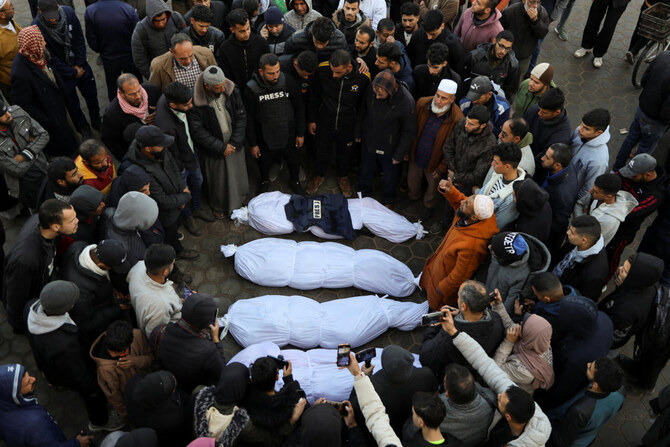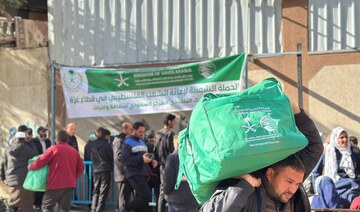BEIRUT: Lebanese money changers refusing to accept older $100 banknotes, known as “white notes,” is causing confusion, particularly after some people were charged an extra $5 fee for exchanging $100 white bills.
Dozens of customers flocked to banks to learn more about the news, especially since some of the white $100 notes were issued by banks.
A customer told Arab News: “Every Lebanese is keeping a stack of $100 bills in their home for when they need them the most since the banks confiscated our deposits, and no one dares to deposit a single dollar in the bank nowadays.”
He added: “I went to my bank to inquire about this new rule adopted by money changers. My daughter told me that one refused to exchange the $100 that she gave him, claiming it was an old edition and he had the right to take $5 as commission if she wanted to exchange it. Who gave them the right to do this? I, my wife and my children all work and we save whatever we make in dollars. Does this mean that our savings have become worthless?”
He said: “The bank manager told me that the problem is with money changers, not banks, since they do not have instructions to stop dealing with the old $100 bills; on the contrary, banks are using both the old and new editions. He suggested that I occasionally bring him $200 to $400, in exchange for which he would give me $50 bills until the issue with money changers is resolved.”
Over the past few days, the topic of “old, white” $100 and the “new, blue” $100 banknotes has dominated conversation.
Money transfer companies were also said to have refused to deal with the older notes. Some money changers have taken advantage of the ambiguity to impose a $10 fee for exchanging white $100 bills.
The confusion was said to said to have been stirred by one of the largest money shipping companies, shut down after it was subject to a judicial investigation into smuggling funds abroad after Oct. 17, 2019 — when the financial crisis hit Lebanon, and in light of which Banque du Liban froze transfers inside and outside Lebanon.
Mahmoud Murad, former head of the Syndicate of Money Changers, told Arab News: “This fad has been circulating in the Lebanese financial market for about a week now. We do not know its source, nor who invented it. The problem is that people believe anything in Lebanon.”
He added: “People who come to my business to buy dollar bills only accept the blue-colored edition now. We, as money changers, are buying and selling both the old and new editions; nothing has changed.”
Murad said: “If the $100 notes are worn-out or torn, we buy them from people but never sell them again. Instead, we give them to shipping companies to return them to the US and replace them with brand-new ones.
“But everyone in Lebanon is now a money changer. The Lebanese, the Syrian, the Sri Lankan, the Bengali, the supermarket cashier, the butcher, all engage in exchanging money. Money changers should not be blamed for this.”
Murad said that the Syndicate of Money Changers met on Wednesday and stressed that all money changers follow legal and moral rules when dealing with customers.
However, Banque du Liban revealed in a statement on Wednesday that “some banks and money changers have charged fees for exchanging $100 banknotes, claiming that they are outdated.”
It added: “The specifications of valid $100 notes are determined by the Bureau of Engraving and Printing, an agency affiliated with the US Treasury,” noting: “BDL alone determines the specifications of valid Lebanese currency.”
The US Embassy in Lebanon also stated on Wednesday that “it is US government policy that all designs of Federal Reserve notes remain legal tender, or legally valid for payments, regardless of when they were issued. This policy includes all denominations of Federal Reserve notes, from 1914 to present.”
Meanwhile, the Association of Banks in Lebanon announced that “after the great controversy surrounding some money changers taking commissions on old $100 bills, ABL would like to clarify that Lebanese banks deal with banknotes without any amendment to existing procedures. No additional fee is charged for accepting white $100 banknotes.”
OMT Exchange also stated that it “has not stopped accepting white $100 bills, if they are in good condition, and no additional fee is charged at any of our centers. OMT does not accept any banknotes that are torn, burnt, yellowed, or even partially damaged.”

























